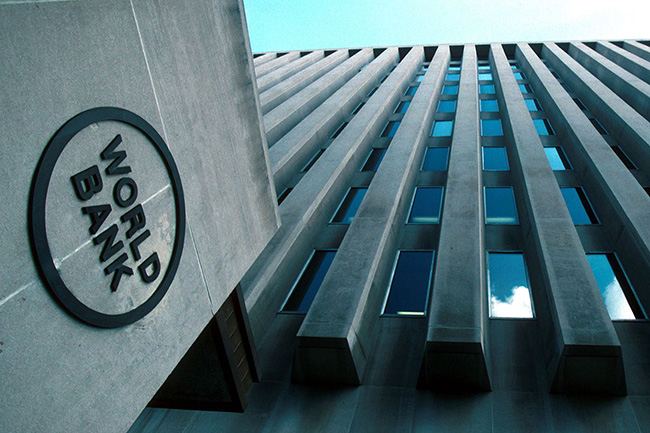Coronavirus may push 60 million into ‘extreme poverty’ - World Bank
May 20, 2020 06:07 pm
The COVID-19 pandemic will drive up to 60 million people into extreme poverty, the World Bank warned on Tuesday.
World Bank Group President David Malpass, during a press call on 100 Countries Milestone for COVID-19 (Coronavirus) Emergency Health Support, stated that their forecasts indicate deep recession this year as much as minus 5% recession for the global economy.
“The health and economic impacts that the COVID-19 pandemic and shut down have inflicted on developing countries are severe. Our estimate is that up to 60 million people will be pushed into extreme poverty – that erases all the progress made in poverty alleviation in the past three years.”
“Families have lost loved ones, millions of jobs and livelihoods are lost, the health systems are under enormous strain worldwide,” Malpass said.
He said the World Bank Group is financing emergency programs in 100 countries, home to 70% of the world’s population.
“This represents a significant milestone in the World Bank Group’s effort to deploy $160 billion dollars over a 15-month period.”
Malpass said the programs are tailored to the countries to effectively respond to the health, economic and social shocks that that country are facing
The programs will reinforce healthcare systems and also help procure vital life-saving medical equipment and supplies. And these programs contain mechanisms that allow other donors to rapidly expand the program.
“And we invite that. There can be co-financing, there can be additional donors parallel with these programs, so it is important that we note that the programs are expandable. And because of the breadth that means the interested donors and other multilateral banks can reach countries around the world.”
Malpass further remarked: “Added to this, there are the billions of dollars that were fast-tracked by the IFC and MIGA, the parts of the World Bank, to help maintain the private sector. The programs are going to work to mitigate corruption. Transparency is a key step in creating resilience and recovery after the crisis, that’s transparency in terms of government debt, in terms of government investment, in terms of contracts and expenditures and tax collection. Those are all critical in having a strong recovery on the other side of the crisis.”
“While the World Bank Group is providing sizeable resources, this won’t be enough. I mentioned the importance of others, bilateral donors and so on, adding to the program, but the safe reopening of the advanced economies is one of the most critical parts of achieving a recovery in the developing world. Also, remittances, trade finance, and tourism are critical loses for the countries and will be critical steps in the reopening.”














